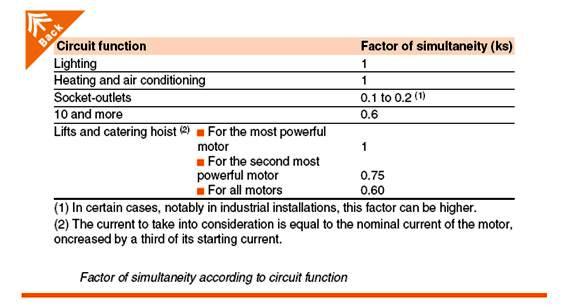Are you unsure during which phase electrical load estimation should occur? Understanding the importance of electrical load estimation is crucial for any construction project, but knowing when to conduct it can be just as significant. Keep reading to learn more about the phase during which load estimation should occur to make the most informed decision for your project.
Potential Challenges
Electrical load estimation plays a critical role in the entire electrical system of any building or construction project. However, one of the main challenges is conducting the estimation during the appropriate phase. It is common for people to overlook the timing of the process and wait late into the project to calculate the electrical load. This can lead to complications, such as the need to install additional electrical panels and wiring, which can impact the budget and timeline of the project.
The Answer
The electrical load estimation process should occur during the design phase of a construction project. This phase is when the architect and engineer are working on the plans and scope of the project and determining the requirements for the electrical system. Performing load estimation during this phase will ensure that all necessary capacities and requirements are in place for the entire project. This phase will also allow for identifying potential issues earlier in the process, providing more time to find solutions and potentially save on costs.
Main Points
Electrical load estimation is a critical part of any construction project, and knowing during which phase to conduct it can significantly impact the outcome of the project. Conducting load estimation during the design phase ensures that all necessary provisions are in place and identifies any potential complications that may arise during construction. It is essential not to overlook the timing of electrical load estimation, as it can ultimately impact the budget and timeline of the entire project.
The Target
The target of electrical load estimation during the appropriate phase is to ensure that the electrical system requirements are identified and put in place during the design phase. This guarantees that the system can meet the demand or capacity requirements throughout construction.
My personal experience taught me the necessity of timing electrical load estimation during the design phase. At my previous job, we overlooked the importance of electrical load estimation during the design phase, which caused significant complications during the construction phase. We ended up installing additional electrical panels and wiring, which significantly impacted the budget and timeline of the project. We learned the hard way that prioritizing electrical load estimation early in the project can save you headaches later.
Benefits of Early Electrical Load Estimation
Conducting electrical load estimation early in the project can lead to several benefits. It allows for proper provisioning and planning for the electrical system, ensures the potential for energy-efficient systems, and reduces the risk of unforeseen issues during construction. Additionally, identifying the requirements earlier in the design phase provides ample time to look for sustainable and cost-effective alternatives without impacting the project's overall budget.
Factors Affecting Electrical Load Estimation
Several factors affect electrical load estimation, such as the building's occupancy type, size, location, and power source. Identifying these factors early in the design phase can ensure that the electrical requirements for the entire project are met effectively. For example, buildings in colder climates may require more power for heating systems, and buildings in hotter climates may require more power for cooling systems.
The Importance of Working with Professionals
Working with an experienced electrical contractor or engineer is crucial during the design phase, as they can ensure that the electrical system effectively meets the project's needs. Electrical professionals can provide insights on the system's overall design and identify any problems early in the process, providing you with cost-effective solutions and preventing costly mistakes.
Question and Answer
Q1. What is Electrical Load Estimation?
A1. Electrical Load Estimation is the process of calculating the electrical load that a building or facility will require to function. This calculation is based on the number of equipment, occupants, and devices that will be using electricity in the building.
Q2. Why Should Electrical Load Estimation Occur During the Design Phase?
A2. Electric Load estimation during the design phase ensures that all electrical systems requirements are identified and put in place from the beginning stages of the project. This prevents complications and unforeseen issues that may occur in the construction phase that may significantly impact the budget and timeline of the project.
Q3. What are the Consequences of Delaying Electrical Load Estimation?
A3. Delaying electrical load estimation may result in significant complications and issues during the construction phase. It may lead to additional costs and work required, such as installing additional electrical panels, which were not accounted for in the project's budget or timeline.
Q4. How Can an Electrical Contractor or Engineer Help with Electrical Load Estimation?
A4. Electrical contractors or engineers are experienced and qualified professionals who can provide valuable insights into the electrical system requirements of the building or facility. They can identify any issues before the start of the project and provide cost-effective solutions, ensuring that the electrical systems meet the building's needs without exceeding the designated budget.
Conclusion
Proper electrical load estimation plays a critical role in any construction project, and identifying the necessary requirements early on in the design phase can significantly impact the outcome of the project. Conducting electrical load estimation during this phase ensures that all requirements are identified and put in place, reducing the risk of unforeseen issues during construction and saving time and money in the process. Working with experienced electrical professionals can also ensure that the electrical systems meet the building's needs while keeping within the allocated budget.
Gallery
Electrical Load Estimation – Part Four ~ Electrical Knowhow

Photo Credit by: bing.com / estimation
Electrical Load Estimation – Part Three ~ Electrical Knowhow

Photo Credit by: bing.com / load electrical estimation building ashrae three part ieee total transformer knowhow
Electrical Load Estimation – Part One ~ Electrical Knowhow

Photo Credit by: bing.com / estimation kva
Electrical Load Estimation R1 29.01.2013 | Power (Physics) | Building

Photo Credit by: bing.com / estimation
Electrical Load Estimation – Part One ~ Electrical Knowhow

Photo Credit by: bing.com / estimation